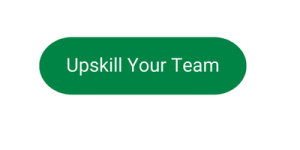Training and skills development are essential to helping you advance and achieve your career goals. This pursuit can be costly, sometimes coming out of your pocket. Some companies offer this benefit to their staff, but you may have to ask your organisation to cover the cost for others. Talking about money isn’t easy. Asking for money to cover training costs can be difficult, and that’s why we’re here to help. Below, we’ll provide you with a template for an email requesting a training budget.
What is a training letter request?
A training letter, or email, is a document you will send to your employer asking them to fund the learning and development programme you want to embark on to learn new or enhance your skills.
Ongoing skills training Is necessary to help you gain new skills, grow your career, bridge the skills gap, boost your performance, and make you an attractive team member and employee to current and future employers. These are a few of the benefits of upskilling, and you’ll want to make a note of these and research others to present them to your employer in your email.
Steps to writing an email training request
- What skills are you trying to improve on and why? How does this relate to your role or industry? What have others said about training and how it improved their performance? Where can you acquire this training? Find out as much as you can about the training programme.
- Request help. Speak to your colleagues and seniors to find out who, where, and how you can get this training and answer other potential questions to help you in your funding application.
- Mention the benefits. You need to be clear about the advantages the training has and how your attending the course will benefit the team and company.
- Express your loyalty. Organisations are wary of paying the costs of training for staff and them submitting their resignation after completion. You need to express your commitment to the company by indicating how you will use the training to help the business achieve its objectives.
- Provide options. It would help to give your supervisor alternatives to building on your skills. For example, if they can’t fully fund the cost of a graduate-level programme, you could attend a conference or seminar or even take a shorter yet still accredited course instead of a year-long course. Showing you are willing to meet them halfway will work in your favour.
- Highlight the return on investment (ROI). What is the outcome of your training and how will it improve your performance and impact the business? Will you keep the newly acquired knowledge to yourself or will you share it with your team, to help improve overall performance? Explain what the ROI will be of you going for training.
You can prepare a slide deck to present to your team or department and highlight the benefits, knowledge, skills, and insights you can gain from a training programme. A well-designed and executed presentation should grab your audience’s attention, deliver a strong argument for the training programme in a way that connects with the audience, and finally, drive your key message home.
Letter writing tips
- Be professional
- Show appreciation and gratitude
- Highlight your strengths
- Proofread before hitting send
- Add a CTA (call-to-action)
- Include a copy of the print media
Template for an email requesting training budget
- Supervisor’s name/Individual with budget authority
- Personal area of professional development
- Personal steps you have taken to educate and self-develop
- Skills you want to learn or improve
- Benefits of the learning experience
- Link to offer or attachment of brochures
- Learning outcome that is relevant to the business and to you
- ROI to the business
- Accreditation and qualifications of the institution or facilitator leading the training
- Testimonial or endorsement
- Why now
Sample of an Email Requesting a Training Budget
Salutation {Dear Jane Doe}
Subject {state purpose of the letter}: Request for Training Budget
Introduction {explain your role in the company} and {request for training budget} and {reason why you want to undergo training}: I work as a trainee accountant in the finance department and have been a part of [name of organisation] for two years. Please receive this email requesting the company’s assistance in providing funding for an accounting training programme. This course will equip me with the skills and knowledge to perform better in my role…
Options {list course names and details} and {include the link to attachment}: The course I would like to go on is a Diploma in Financial Accounting. This is a six-month-long course with modules covering key accounting knowledge and a final assessment. Please find the link below/the brochure attached.
Benefits {state the benefits, learning outcomes and the ROI to the organisation}: By going on this learning and development programme, I will… [list benefits].
Programme information {state the accreditation and qualifications of the institution or facilitator leading the training}: The institution providing the skills development programme is…
Conclusion {extend gratitude and appreciation}: I would like to express my gratitude to you for providing me with this learning opportunity. Since joining the company, I have learned a lot and look forward to growing in my role and helping the company meet its annual goals.
I am happy to provide additional information or answer any questions you may have about the proposal. Please let me know by {add date] to submit my application and registration before the programme begins in [add date].
Sign off {add your name with your signature}
In crafting your email requesting a training budget, keep in mind that your words hold the power to shape your organisation’s growth. By presenting a well-structured and compelling case, you’re not just seeking funds; you’re advocating for the enhancement of skills, the advancement of knowledge, and, ultimately, the growth of the business. Let your email reflect your commitment to excellence and your belief in the transformative impact of ongoing learning. Remember, your request isn’t simply about a budget. Instead, it’s about investing in the future and reiterating that it’s a future worth investing in. Good luck.










